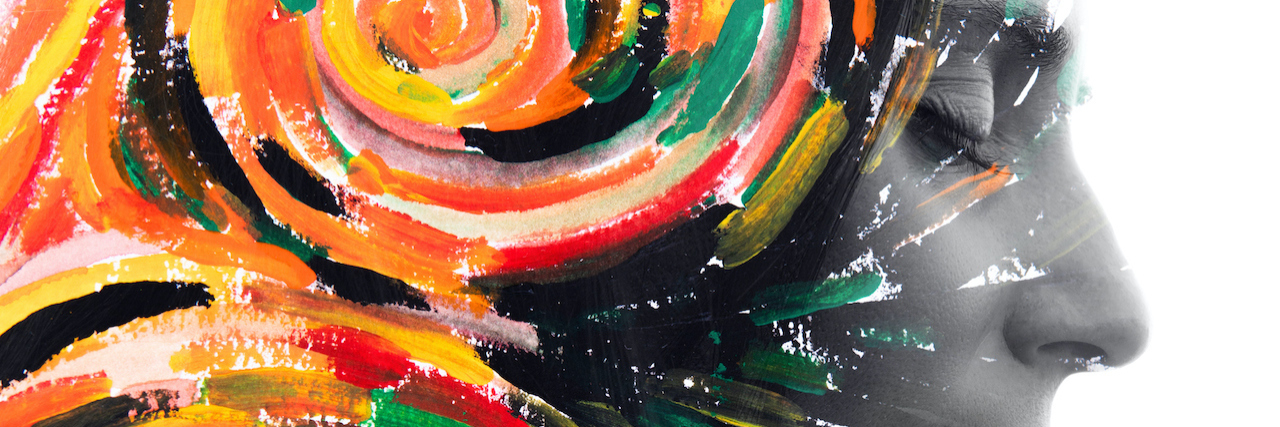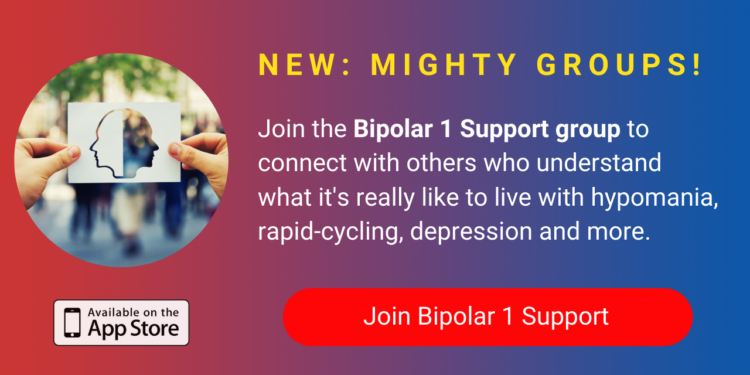I have a few friends who have varying levels of physical disability. If I arrange to meet somewhere, I now know to check if it’s accessible first. But if I forget to or get it wrong, I’m never angry at them if they ask if we can go somewhere that they can access.
• What is Bipolar disorder?
When they tell me stories about times people have stigmatized them, patronized them or made assumptions about them, I am horrified — who would be so ignorant? This isn’t the Victorian times anymore!
I completely understand it’s essential they find work that makes reasonable adjustments to them and accommodates them. And if they can’t find that job, I totally get they can’t work and need benefits.
I would never, ever, compare them to someone without a physical disability and say, “Why haven’t you done that? Why aren’t you as successful as them?”
I totally get it. All of it.
I used to find it really hard to give myself the same understanding and accept that I have a disability.
Why did I feel guilty when I can’t go to a friend’s birthday party, because I felt unwell and there would be alcohol and late nights? Why did I feel like a loser because I couldn’t go on the girls holiday? Why was I never able to say, actually, can we do something more bipolar-friendly? It felt easier sometimes to just not have any friends.
Why did I get so angry about people stigmatizing, patronizing or making assumptions about me, but felt like I couldn’t tell the person in question how I felt? I watched as people said ridiculous things about my schizophrenic cousin, things I knew weren’t true. But I was afraid if I spoke up I too would experience the full family rejection he had. I thought I would also be seen as a huge burden to both my parents and society.
Why did I think I could work a high stress, full time job and just hope I could hide being bipolar? I was so afraid of stigma I pushed myself too hard and tried to pretend I was “normal.” I ended up in hospital after a breakdown rather than tell people I needed a little more understanding here and there. Because I felt if they knew about my condition I would be fired. I couldn’t access therapy, because I didn’t want my boss to know I was sick. Anything that might raise suspicion to my disorder, I tried to hide.
Why did I feel ashamed when I couldn’t work after my breakdown? That I wasn’t really disabled, and I should just be able to get my act together? If only I could stop sleeping, I could be really successful, I thought. I am just lazy.
Why did I think it was totally reasonable for someone to say they don’t want to be in a relationship with someone with bipolar disorder, when they didn’t even really know me? Why did I tell people up front, right away, so I could get the potential dumping out of the way quickly? Why did I put up with poor treatment? I thought I couldn’t really do any better, because who would want a bipolar girlfriend?
And why, oh why, did I compare myself with someone who does not have bipolar? The woman who is more successful than me, whose achievements I see posted about on Facebook, whose achievements I want — she does not have bipolar. Why were my expectations for myself not adjusted?
Because I did not see myself as having a disability. I had internalized stigma. I felt I was a faulty person. A person gone wrong. Not a person with a condition that can be very complicated and quite difficult to balance. I was running on broken legs, not getting far and falling often. I thought because my disability was hidden, I could just pretend it wasn’t there. I thought it’s the label of bipolar that holds the stigma, and if I can hide the label people won’t judge me. Not realizing that my behavior, my personality, is a huge part of what causes the stigma in the first place.
So now I am out and open about my condition. If someone does not want to be in my life because of my bipolar, I don’t want them there either. And yes, I do think they’re as bad as someone who doesn’t want to befriend someone with a physical disability.
If someone is saying something ignorant about bipolar or mental health in general, I correct them. Yes it’s embarrassing for them, but it’s not as bad as the misinformation they spread about people like me, that I have to face the real consequences of. Consequences that affect my job prospects, relationships and physical health.
Most of all I accept who I am, I accept that many things in my day-to-day life have to be taken into consideration so I can stay as stable as possible. I need routine, I need my life to be low stress. It’s like walking on a tightrope sometimes, but it has to be done. I accept that some people are not right for me and some people don’t want to be there. I accept that all this effort to stay well means I am not always able to be a high flyer. Maybe I will never be able to travel the world or be the CEO of a 50 person business like I originally wanted. That’s OK, I am happy with my little freelance business and family holidays to Cornwall. I am a disabled person, I need to work around things sometimes. I can still make achievements, and maybe in some ways they’re more impressive because I am working with a disability.
Often people say I shouldn’t be defined by my bipolar, or see myself as disabled because I can achieve anything I put my mind to. But what should I do? Pretend I don’t have bipolar, or simply get better? Stop thinking about it? To suggest such a thing suggests that bipolar doesn’t affect my life in any meaningful way.
Some people do not see their bipolar as a disability and that’s great too. But I hope for those people, their life isn’t as impaired by their bipolar. I hope their bipolar genuinely isn’t holding them back.
If your bipolar is holding you back, I hope you can reach the same level of acceptance that I have. It’s OK to have a disability. And most of all I hope you too can feel proud of what you’ve achieved in life as a person with bipolar, whether that be traveling the world, buying your first home or simply surviving another day.
Getty image by Victor_Tongdee


